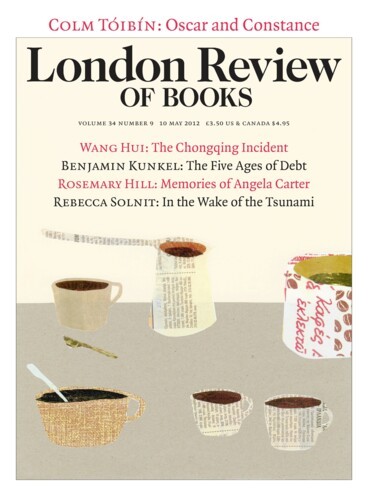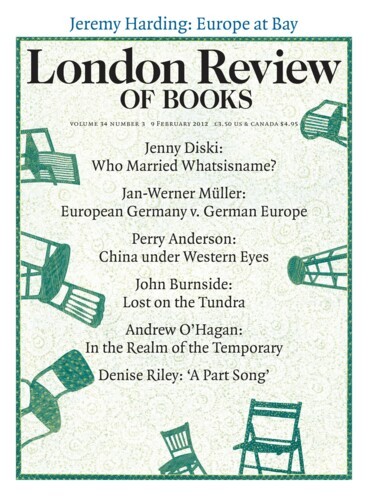Timothy Alborn is the dean of arts and humanities and a professor of history at Lehman College of the City University of New York, and a scholar of Victorian business history. From 1989 to 1998 he ran Harriet Records, which released singles and CDs by never or not-yet famous pop groups such as the Scarlet Drops, Twig and Wimp Factor XIV. From 1985 to 1998 he also published Incite!, a fanzine with perhaps as many as several hundred readers, fans of obscure pop and rock bands from Boston to Dusseldorf to Melbourne. (During the 1990s Alborn taught at Harvard, where I met him and became a fan of his work.)
Stephanie Burt
Stephanie Burt is a poet and professor of English literature at Harvard. She is the author of Randall Jarrell and His Age, The Art of the Sonnet and After Callimachus, a selection of translations, some of which were first published in the LRB. Advice from the Lights, a collection of poems, came out in 2017. Her book about Taylor Swift, Taylor’s Version, is due in October.
Must poets write? Poetry Post-Language
Stephanie Burt, 10 May 2012
Traffic right now on the Connecticut Turnpike is doing quite well. The southbound side does see construction through Stamford. Watch for lanes being closed between exits 9 and 7. It’s blocking at least one lane ’til six a.m. Once you make it down to the city line you’re OK here. The Westchester County portion of the New England Thruway right on down through the Bronx on...
No scene could be worse: Adrienne Rich
Stephanie Burt, 9 February 2012
Adrienne Rich’s new poems show qualities that almost require the label ‘late style’. They are made up of fragments, careless of finish and of audience. In technique, as well as in explicit subjects, they account for debilities and advancing years, which they also fiercely defy, and they look back so insistently to her earlier work that they may not seem designed to stand up...
Where are the women?
28 July 2011
There are the records you like that everyone else seems to like, and the records you like that very few people have heard. And then there are the records you like that everyone else who has heard them seems to despise, the records that sank, or nearly sank, musicians' careers. At the top of that third stack, for me, is Bob Mould's modulate. Before it came out in 2002, Mould was known as an indie-rock guitarist, writing grim, angry, straightforward songs. modulate, though, was half mumbled and half AutoTuned, flipping disconsolately between dirty guitars and a low-budget version of the Pet Shop Boys, composed partly on synthesisers that sounded as if he'd just bought them; it was dance music that nobody could dance to, a collection of could-have-been hits undermined and overrun by brassily programmed samples, police sirens, bells, boxy electronic drums, and other touches that repelled a rock audience without going out of its way to grab anyone else.
Pieces about Stephanie Burt in the LRB
Toolkit for Tinkerers: The Sonnet
Colin Burrow, 24 June 2010
Sonnets have no rival. They’ve been written about kingfishers, love, squirrels, the moon (too often), God, despair, more love, grief, exultation, time, decay, church bells beyond the stars...
Read anywhere with the London Review of Books app, available now from the App Store for Apple devices, Google Play for Android devices and Amazon for your Kindle Fire.
Sign up to our newsletter
For highlights from the latest issue, our archive and the blog, as well as news, events and exclusive promotions.




